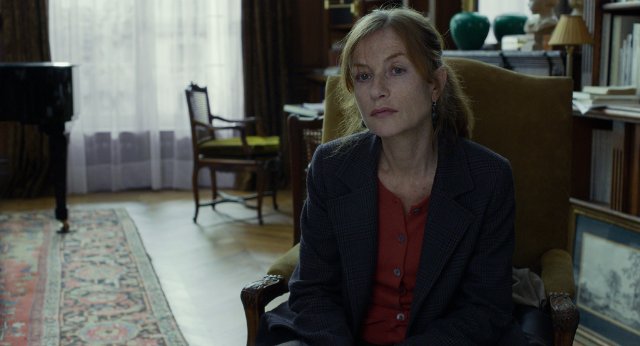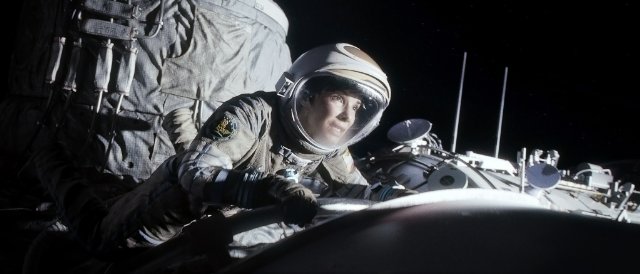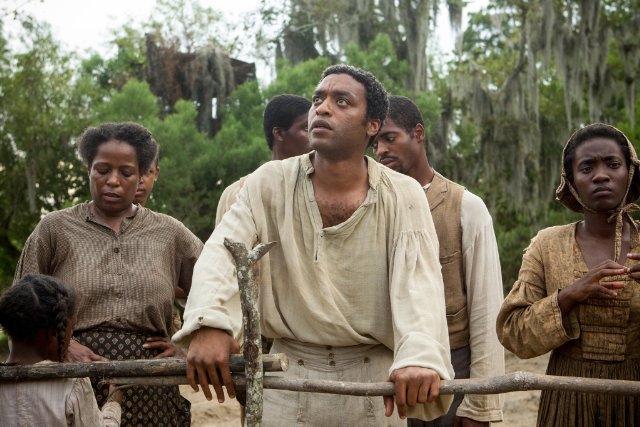10 Great Movies We Watched This Year: Rob Christopher's Picks
By Rob Christopher in Arts & Entertainment on Dec 23, 2013 5:00PM
In a recent article for Salon, Daniel Carlson offers some insights about why awards season is so terrible for movies:
... awards coverage treats movies as if they exist only for the few weeks at the end of the year when studios put out “prestige” titles that are designed to capture award nominations. There’s no real secret to why they put out these movies at the end of the year: our brains look more fondly on recent experiences, so studios want films to come out as close to the nominating cycle as possible. There’s also a self-fulfilling prophecy involved; since the end of the year is now associated with award contenders or prestige titles, releasing your movie at that time can give you a subconscious boost in the mind of the voter. But movies exist long after a particular awards season has ended. That’s why the notion of “great movie years” is flawed; it assumes that, e.g., Inside Llewyn Davis exists solely as an artifact of 2013 that was created to compete in a few arbitrary competitions, instead of treating it as a film that anyone can watch at any time going forward. It’ll still exist next summer, and the year after, and ten years from now, long after we’ve forgotten every fleeting pop culture story from the 2013 awards.
A to the men. Ever since I've been writing these "best movies of the year" posts for Chicagoist I've been very adamant about including movies of the past. Just because a movie isn't "from" 2013, why can't I honestly claim it as one of the best movies I watched in the past year?
Enough carping. Here's my list:

Isabelle Huppert in Amour (Photo by Darius Khondji - © 2012 - Sony Pictures Classics)
Amour (2012, directed by Michael Haneke)
A year of intense, unusually bleak movie-watching began in January when Haneke's masterpiece opened in Chicago. Like his other films, it's meticulous and austere. There's not a detail, or an emotion, out of place. And the absence of maudlin sentimentality is what makes it so devastating, anchored by two flawless performances by Jean-Louis Trintignant and Emmanuelle Riva.
Before Midnight (2013, directed by Richard Linklater)
Scott Lucas has made the claim that Linklater's "Before" movies constitute the best film trilogy ever. If so, Before Midnight is a worthy capper, packed with observations (and arguments) that anyone in a long-term relationship can intimately relate to. At this point, Ethan Hawke and Julie Delpy inhabit their characters so fully that watching the movie is akin to spending time with two old friends.
Blue Jasmine (2013, directed by Woody Allen)
Cate Blanchet turns in the best female performance in an Allen film since Gena Rowlands in Another Woman. Aside from her riveting performance, Blue Jasmine also captivates by teetering between comedy and tragedy, deliberately withholding "cues" to tell us how we're supposed to react at any given moment (case in point: the Italian dinner scene with the kids). It also made John Waters' list: "My Bay Area friend said it best: 'We love the movie here. Only Woody Allen could make San Francisco look ugly.'"
Computer Chess (2013, directed by Andrew Bujalski)
As I wrote in my original review, "In best period piece fashion, Computer Chess journeys back to the early 1980s and shows how similar things were back then (polyester suits and tie clips notwithstanding) ... Both aesthetically and otherwise, Computer Chess is delightful from start to finish. Bujalski has appropriated yesteryear's obsolete technology to make this year's freshest movie."
Double Play: James Benning and Richard Linklater (2013, directed by Gabe Klinger)
Often, just before I see a project that a friend has worked on, I get squeamish. What if it sucks? What if I have to softpeddle some non-compliments like, "Wow, great job. I've never seen anything quite like it. You must have worked really hard on it, right?" That's how I felt before seeing Double Play at the Music Box, because filmmaker Gabe Klinger is a friend of mine, and this is his first film. Happily, not only did I enjoy the film, I can honestly say that in its own humble way it's one of the best documentaries about filmmaking and friendship I've ever seen. Even if you know next to nothing about Benning or Linklater, by the end of the movie you'll find yourself admiring their work and their tenacity in creating it. The documentary is getting a digital release from FilmBuff next year.

Sandra Bullock in Gravity (Photo by Courtesy of Warner Bros. Picture - © 2013 Warner Bros. Entertainment Inc.)
Gravity (2013, directed by Alfonso Cuarón)
Because I have a touch of acrophobia, there are certain movies I've not yet been brave enough to watch—Man on Wire comes to mind. But I'm certainly glad I saw Gravity. It's probably the most suspenseful movie I've seen in a theater. The special effects are peerless, and they work to support a refreshingly minimalist story that only makes the stakes feel higher. I also love the clever way Cuarón brings back George Clooney towards the end.
Like Someone in Love (2012, directed by Abbas Kiarostami)
The Iranian master filmmaker's latest story-puzzle didn't receive the attention it deserved. Set in Japan, the jigsaw pieces include an elderly retired professor, a young girl who may or may not be a prostitute, a vengeful (ex?)boyfriend, and Ella Fitzgerald's haunting recording of the title tune. Those elements might sound perfect for a low-rent film noir. But just as in Certified Copy, Kiarostami has something a lot more slippery in mind. The ending is a stunner.
The Pervert's Guide to Ideology (2012, directed by Sophie Fiennes)
Best not to know too much about where Slavoj Žižek plans on taking you before you watch this provocative cine-essay about the things behind the things we encounter in our everyday lives as consumers of images. "The tragedy of our predicament when we are within ideology," says Žižek, "is that when we think that we escape it into our dreams, at that point we are within ideology." And how many other movies can you make you appreciate both Taxi Driver and The Sound of Music?
Portrait of Jason (1967, directed by Shirley Clarke)
Having read about this movie for years, I finally got to see it at the Music Box, no thanks to "Eddie" Carranza. I was not disappointed. Clarke digs deep into her subject, an occasional hustler whose undeniable charisma is equal parts genuine and a carefully cultivated act. Just like Clarke's deliberately "ragged" editing style, which gives you the feeling of watching "unfiltered" reality while being manipulated at the same time. Eye-opening stuff for 1967, and still utterly absorbing today. Portrait of Jason will return to Chicago for a screening at the Siskel on March 18, 2014. I'm ready to buy my ticket.

Chiwetel Ejiofor in 12 Years a Slave (Photo by Jaap Buitendijk)
12 Years a Slave (2013, directed by Steve McQueen)
What can I add to the plaudits already received by this extraordinary movie? For me, in its sheer power and artistry, it ranks up there with Shoah and McQueen's earlier movie Hunger. And like those movies, 12 Years a Slave is no dry history lesson but instead a harrowing journey through brutality and degradation, leading to a moment of peace and even acceptance. No other movie in 2013 was more difficult to watch, or more worthy of watching.